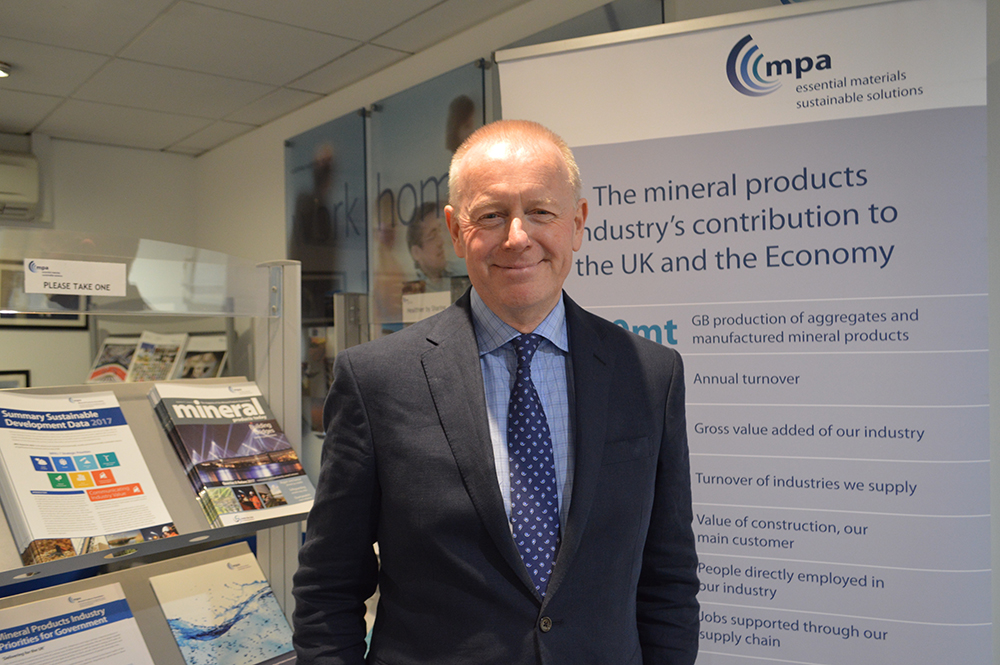
A mixture of pride and frustration is a constant theme during any industry-based conversation with Nigel Jackson. Pride is evident when the MPA's chief executive notes the British Government's official recognition during the COVID-19 pandemic of the essential role the UK mineral products sector has in securing national prosperity, with MPA members producing 400 million tonnes of resources and products for UK construction and manufacturing each year.
Recognition has followed tireless campaigning by the MPA, including the 2018 publication of the first industry-led UK Minerals Strategy designed to help the country meet the demand for minerals for the next 25 years sustainably. The strategy, prepared by the MPA and the CBI Minerals Group, has been recognised by the Government, NGOs (non-governmental organisations) and professional bodies, including RICS (Royal Institute of Chartered Surveyors) and the Royal Town Planning Institute.
Frustration is apparent when Jackson refers to the lack of a level playing field for the mineral products industry compared to other UK industries, such as agriculture. On 1 April 2022, mineral products companies lost their right to use lower-tax red diesel, effectively costing the industry at least £100 million a year.
"We have consistently said over ten years that the rebate should be maintained until such time as the industry has an alternative to diesel. We understand the link with decarbonisation, and there's no principled objection from our side. It's about the timing of this. What the Government needs to do is incentivise the development of commercially viable alternatives like electric power, so our industry gets them faster. Nothing irritates me more about Government measures than where they are inconsistent, disproportionate and unreasonable, and this issue ticks every box.

"Agriculture is another primary industry; if you can't grow it, you've got to dig it. I would say they have parity with us strategically, yet the agriculture industry will retain the [red diesel] rebate. We don't understand the disparity. Our colleagues in the construction industry are equally anxious about this. We were disappointed with the UK Chancellor's Spring Statement, as it was an opportunity for the Government to say that they'd listened and would keep the rebate for a year or two. We know that alternatives are coming in. For instance, JCB, an MPA member, is bringing in more and more electrical plant, as are other manufacturers. Government pragmatism on this would help build industry goodwill, and it would make companies want to lean in more and transition to non-diesel fuels in a practical and profitable way."
Asked whether the ending of the red diesel rebate would lead to smaller mineral product producers going out of business, Jackson replied: "Mineral products companies are very resilient. This will increase costs that they may or may not be able to pass on [to customers], so it could cut into their profitability. If that profitability turns into a loss, it is harder to go to the bank and get funding to invest and innovate on alternative fuels and carbon reduction and other aspects of their business. With the general increase in UK energy costs, this issue has really hit home and become more business-critical."
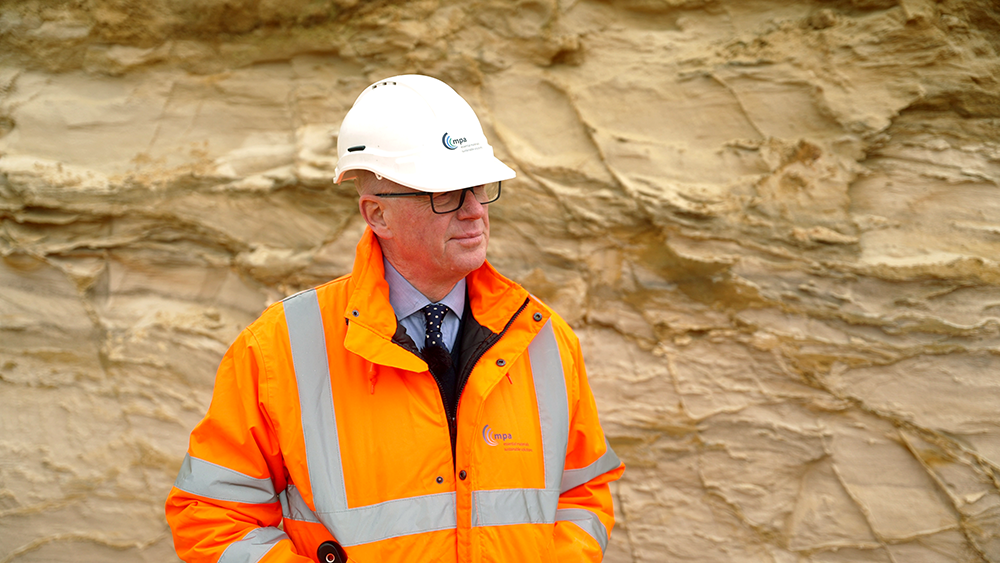
Jackson is also frustrated with aspects of the Aggregates Levy, introduced in 2002 by Tony Blair's Labour Government as an environmental tax aiming to encourage more efficient extraction and use of aggregate and encourage alternatives to virgin aggregate. The MPA welcomed the Chancellor's autumn 2021 budget announcement that the levy would continue to remain at £2 per tonne of aggregates used in construction, its level since April 2009, but would like to see this extended beyond April 2023.
"The Aggregates Levy was a bad tax conceptually from the outset, which remains the case. We've never been convinced about its environmental justification. We see it as an outright tax. I could take it more seriously if all producing industries were being taxed like this. At the same time, the mineral products industry has significantly improved its environmental performance, for which it has received no credit. We also lost the one good aspect of the levy, which was the sustainability fund which helped reinvesting into local communities. The industry is responsible and already had proud environmental credentials before the Aggregates Levy came in. We have now got one of the best [mineral products] recycling stories you will find, probably globally.
"The cumulative burden of the Aggregates Levy and other green taxes that the mineral products industry is facing is well in excess of half a billion pounds each year. Other industries are not subjected to this. The withdrawal of the red diesel rebate, costing at least another £100 million, is another kick in the teeth for our industry at a bad time."
Does Jackson believe the Aggregates Levy is here to stay? "Yes – and that's always been our view. Regarding the future structure of taxation, you have to ask yourself, 'Is it more or less likely that environmental taxes will increase or decrease?' In a world that's chasing net zero [carbon] and nature recovery, the strong likelihood is that these taxes will proliferate and widen. Politically, it's too easy and too attractive not to do it, quite frankly. If you were to lose, for example, up to £400 million a year in Aggregates Levy taxation, you'd have to tax something else."
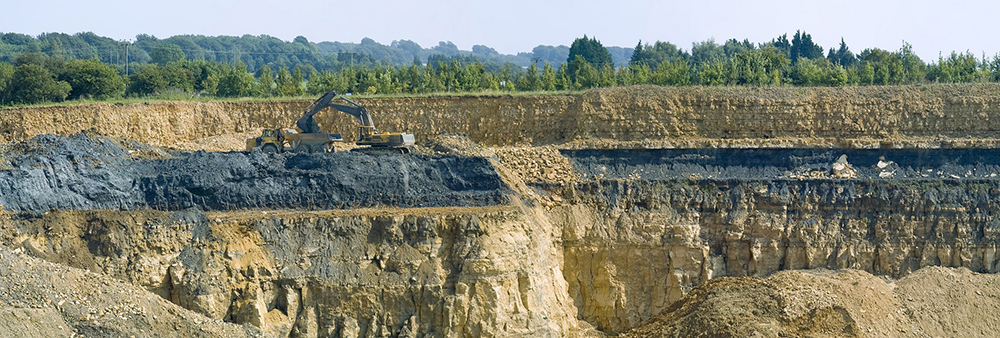
A highly respected and valued industry figure, Jackson has worked for over 45 years in senior management and board-level positions in the mining, quarrying, waste and construction industries. He has been chief executive of the MPA since its founding in June 2009, following the merger of the Quarry Products Association, the British Cement Association and The Concrete Centre. As well as his work as the MPA's chief executive, he is chair of the Confederation of British Industry (CBI) Minerals Group, an officer of the Construction Products Association, vice president of UEPG (the European Aggregates Association) and a founding member and co-convenor of the UK Minerals Forum.
The MPA is the trade association for the aggregates, asphalt, cement, concrete, dimension stone, lime, mortar and silica sand industries. It is the sectoral voice for mineral products. With the merger of British Precast, and the affiliation of the British Association of Reinforcement (BAR), Eurobitume, MPA Northern Ireland, MPA Scotland, the British Calcium Carbonate Federation, and most recently CONSTRUCT, it has a growing membership of over 530 companies.
MPA membership includes the vast majority of independent SME (small and medium enterprise) quarrying companies throughout the UK and ten major international players. It covers 100% of UK cement and lime production, 90% of GB aggregates production, 95% of asphalt and over 70% of ready-mixed concrete and precast concrete production. Mineral products industry production represents the largest materials flow in the UK economy and is also one of the largest manufacturing sectors. In 2018, the industry supplied £16 billion worth of materials and services and was the largest supplier to the construction industry, which had annual output valued at £172 billion.
Like all commerce, the UK mineral products industry is emerging from a prolonged period of disruption due to the global COVID-19 pandemic. The Ukraine crisis has pushed energy prices up even higher, eating further into companies' margins as they look to get back to a more normal trading environment last seen in 2019.
"The big thing for all business, including our members, is recovering and sustaining profitability so you can finance your engagement with key issues, like climate change," says Jackson. "If you don't have a viable business, responding to climate change becomes academic. We need Government to create conditions that give business confidence to invest to secure growth. Anything we put to Government is linked to building business confidence.
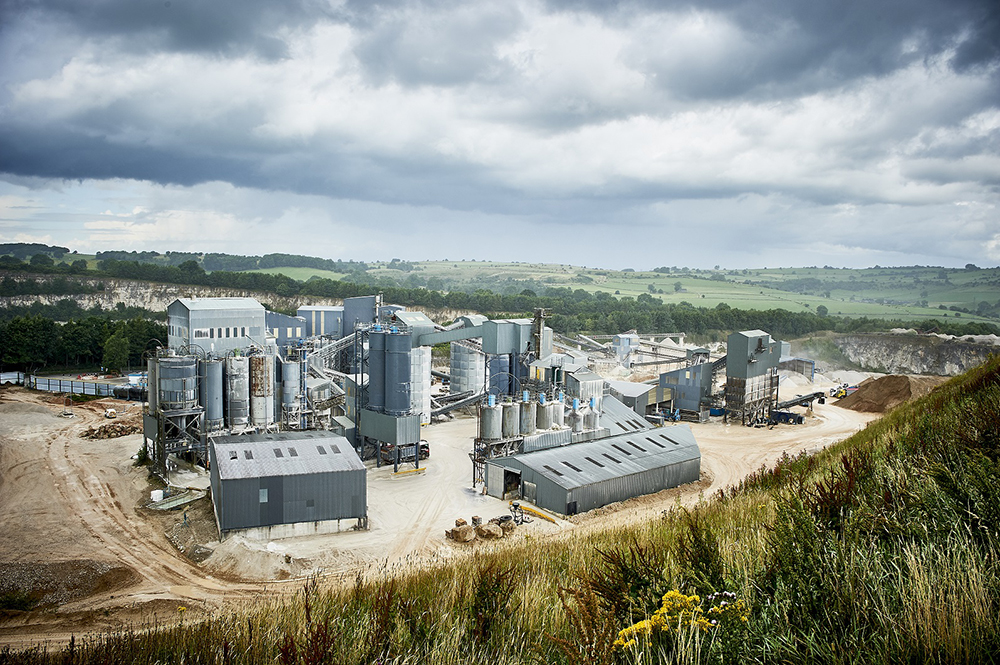
"No one wants to operate with any more uncertainty than is necessary. There is a point you can reach where the loss of confidence is corrosive. We're picking it up in businesses' carbon and energy costs and serious inflation. It is making it very difficult for businesses to price ahead. A [supply chain] client's going to say, 'I can't pick up the risk on that', and that gets to the commissioning client who says, 'There's too much risk and uncertainty here, I might just hold off on the development'. BEIS (Department for Business, Energy & Industrial Strategy) has picked up on this, too. You have to make sure that doesn't lead to a domino effect that seriously undermines growth prospects.
"2021 was a solid year for the mineral products industry. Numbers were up, and we want to keep it that way. Our members are busy but anxious, like much of the British economy. We are a heck of a lot closer as an industry to where we were in 2019. You do, however, need to take pent-up demand out of that.
"If I had to pick one word to describe MPA members, it would be 'resilient'. In the [global] financial crash [of 2008-2009], none of our members went bust, despite the shocking behaviour of the banks. They got through it. A lot of our member companies are fourth-generation family businesses; they know that when the sun is shining, you put the money away for a rainy day. They will cut their cloth accordingly and will have reset their cost base so, when the rebound comes, the hits they may have taken when things were not so good can be earnt back."
Jackson is pleased with the great progress the UK mineral products industry has made in the last five years on health and safety, the MPA's top priority. Its Vision Zero – Safe & Well Everyday strategy is the foundation for the association's reinvigorated health and safety plan until 2025. It includes several ambitious targets in this area, including achieving an industry-wide Lost Time Incident Frequency Rate below 1.5 days by 2025 – equivalent to a 50% reduction on 2020; to achieve zero reportable incidents (fatalities and serious injuries) attributable to ‘The Fatal 6’ causes by 2025; with far greater attention to leading indicators.
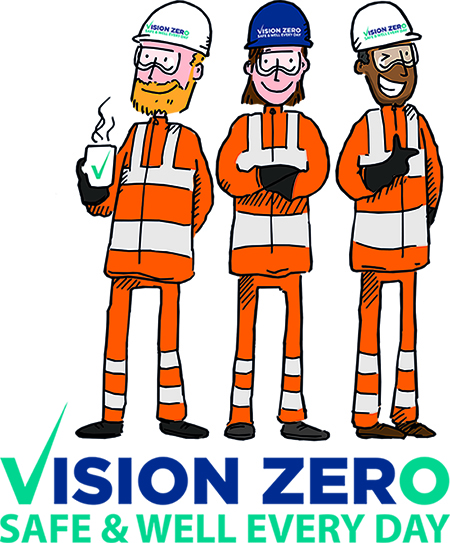
‘The Fatal 6’ refers to the fact that 94% of historic fatalities in the mineral products industry fall within six common themes: Contact with moving machinery and isolation; Workplace transport and pedestrian interface; Work at height; Workplace RCS; Struck by moving or falling object; and Road traffic accidents.
The MPA also stages a well-attended annual Health & Safety Awards event in London, showcasing and sharing members' best practices, available on safequarry.com.
"In 2017 the industry incurred a lot of fatalities, but it was the catalyst to reset the approach to health and safety," says Jackson. "In terms of employees and contractors, we've since had the longest period fatality-free ever. There have been three third-party fatalities, which is still completely unacceptable, but it shows what can be done when you get a collective commitment. It's no coincidence that the MPA's development of Vision Zero and the adoption of the ‘The Fatal 6’ has preceded a time of no fatalities among industry employees and contractors.
"In terms of the larger-scale issues: - climate change, access to mineral resources, and resource use - we've been saying for many years now that this is the agenda of the future. If you want to earn your licence to operate, you have to demonstrate that you understand what your carbon footprint is, decarbonise and get to net zero, by 2050 in the UK's case."
Jackson notes that most of the mineral products industry's carbon emissions come from manufacturing cement to go into the "world's most sought-after man-made material", concrete.
"Our members have identified how they'll not only get to net zero by 2050 but go beyond that. It's a non-negotiable mission. But what we need to do increasingly is communicate the progress being made on that ambition and actual delivery. We are doing that through our campaigning vehicle, UK Concrete, to explain why we need concrete and the value it brings to the world. It's not a downside balance sheet as some green activists suggest; it's a positive balance sheet in terms of civilising the infrastructure and built environment at minimised environmental cost.

"The formative thinking on all of this was done years ago. It's not because of COP26 in Glasgow; it's because the people in our industry understand that the climate is changing, that there's a footprint that the industry creates, and there's a moral and ethical necessity to respond to that. Young people coming into our industry don't want to work in an industry that is unresponsive to these issues. I pay a lot of credit to them for bringing in modern thinking to augment the experience of the industry."
A recent MPA report depicted Britain's success story on the recovery of construction waste to produce recycled aggregates. Based on 2020 data, the association estimates that nearly 30% of aggregates for construction come from recycled and secondary sources – some 62 million tonnes in 2020. The MPA says this means the UK mineral products industry recycles more than any other sector by volume and places Britain among the leading recyclers of construction materials in Europe.
"The conclusion is that if demand for aggregates is going to stay at or around the same level we've experienced in recent years, and recycled materials represent the first element of supply, the rest has to come from quarries," says Jackson. "You can't recycle away the need for quarries. You do get people still evangelising recycling as if it's a new nirvana concept that no one has thought of; it is an 'old-news' story for our industry.
"The challenge has been pushing the material up the value chain, but there is a limit to how far it can go. The important thing is that this is by far the best recycling story this country has got to tell, which DEFRA (Department for Environment, Food & Rural Affairs) do not understand or recognise."
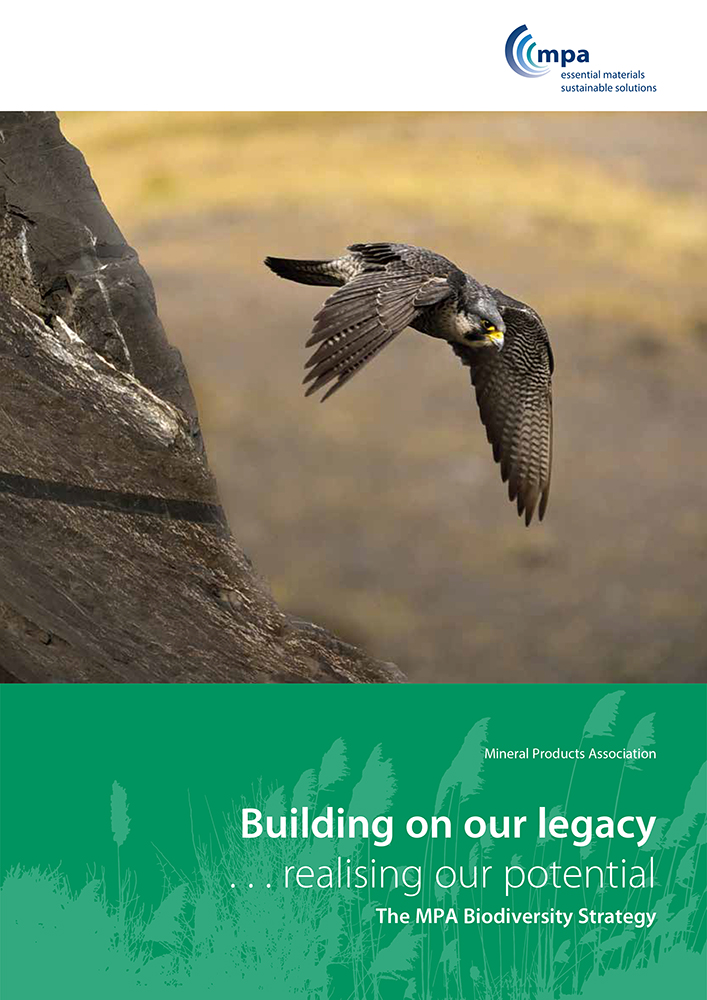
Jackson explains that the UK mineral products sector's biodiversity record is another cracking success story that the industry needs to tell even more clearly than ever. "Conscious nature habitat creation resulting from quarry restoration is an industry success story going back at least 50 years. In the early years, it was more likely to be by default than design. But in the last 20-25 years, it's been far more by design. I see quarries as oases for nature recovery. We've evidenced that and documented it well. There's no other sector in the country that's delivered and continuing to deliver what we're doing. I hear an awful lot of greenwash from other industries, like agriculture and water, that talk a good game but are doing little or nothing that makes any difference compared to the harm they are doing to soil, water, hedgerows and biodiversity.
"We have created priority habitat already the equivalent in size to Nottingham, and a further area the size of Liverpool is already planned and in the pipeline. You would have thought that someone at DEFRA might have shown an interest in this story as an example of how industry is also delivering for nature as it delivers materials for the UK. We are still trying to get through to them, but thankfully Natural England and leading NGOs like the RSPB and Wildlife Trusts get it and are interested."
Commenting on the ongoing expansion of the MPA's team of experts, Jackson says: "The world is uncertain and changing, and you've got to resource well to respond to that. We decided pre-pandemic that we wanted to invest in certain areas, including public affairs, economic affairs, communications, carbon energy, and, critically, with the formation of MPA UK Concrete, how we tell the story of concrete to non-technical audiences.
"We need to push back on the ignorance and misperception that exists in the non-technical sphere of people who think that timber is the answer [in construction]. Timber is not the answer to the world's construction or manufacturing needs, whether that's renewable energy infrastructure or climate adaptation systems. I'm not anti-timber; I'm simply anti using timber when better alternatives exist. The understanding of the benefits of concrete compared to other products needs explaining. When we explain, we see that people understand the whole-life cost advantages of concrete a whole lot better. You are going to have to use billions of tonnes of aggregates and cement every year if you want to have a sustainable, civilised world, and there are no serious alternatives at scale to replace that reality.
"Further, the UK is the only country in Europe where we've got nearly all the key products in one industry association, and we are building a fighting force to protect and promote the industry for the vast majority of companies that work in it."
As we near the end of our conversation, Jackson again refers to the huge significance of the Government's recognition of the essential role of the mineral products industry: "It helped keep businesses going and weather the disruption of COVID. Essentiality of the sector is something said that can now never be unwritten or unsaid. The [mineral products] industry is fortunate, unlike retail and hospitality, to still have its capability and capacity, but like all sectors, we need to build in a way that is even more sustainable. We should be thankful that we have a well-run and essential industry that is critical to the fortunes of our economy and our quality of life.
"Nobody should ever forget the value of a bridge, a tunnel, a sewer, the foundations of a building. Without those things, we become, essentially, fragmented, poorer and uncivilised. Mineral products are critical parts of the glue that shape our civilisation. Everyone in the mineral products industry should be as super proud as I am to be involved in it as our end product is non-negotiable, and it will get better over time. We also represent the largest remaining heavy side industry in the country."
So, what does Jackson think are his biggest achievements have been as MPA chief executive? "Building unity and retaining it. Without unity, there is no influence. That goes not just for the members we serve but the building and retention of our team. We have a stable, solid and world-class team that does a great job. I feel passionately that without industry unity, you cannot compete for attention, and you will not have influence with Government and key stakeholders.
"We are in a far more complicated working environment than in 2009 when the MPA was founded. We are dealing with more issues, and more interconnected and complex issues. You cannot map and respond to that unless you have a coherent team of experts within member companies and the association working together to broker solutions. That is where our future lies."








